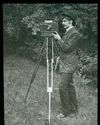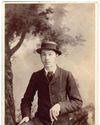
This ultra-wideangle lens for Hasselblad’s medium-format mirrorless cameras is designed for use in a variety of situations, with obvious examples being landscapes, architecture, and interiors. However, the firm also says that it is particularly designed to give great results in low-light conditions, such as astrophotography, urban street and nightscape photography, and night landscape photography.
The lens is designed with high-resolution cameras in mind. Hasselblad offers 102MP medium format cameras, including the 907X 100C and X2D 100C, the latter of which I used for this review. It is, of course, also compatible with Hasselblad’s other mirrorless medium format cameras.
Whilst this lens isn’t as small as the firm’s XCD 28mm F4 P , it is brighter at F2.5, and wider giving a 20mm equivalent view. It also features a push/pull focus ring for selecting between auto and manual focus, as well as a customisable control ring. It’s relatively lightweight at under 600g, and reasonably small in terms of medium format lenses. In fact it doesn’t look out of place next to full-frame lenses.
Features
The lens features an upgraded 10-blade leaf shutter unit, which allows for faster exposures of 1/4000sec. The same shutter can be found in many of Hasselblad’s newest lenses, whilst previous lenses used a 4-blade design.
There is no in-lens optical image stabilisation. So if this is something you’re specifically looking for, then you’ll need to get a camera with in-body image stabilisation. This can be found in the Hasselblad X2D 100C.
The aperture starts at f/2.5, as you’d expect, and can be stopped down to f/32. Optically the lens is made up of 13 elements in 10 groups, with 4 aspherical elements, and 3 extra-low dispersion elements.
This story is from the July 02, 2024 edition of Amateur Photographer.
Start your 7-day Magzter GOLD free trial to access thousands of curated premium stories, and 9,000+ magazines and newspapers.
Already a subscriber ? Sign In
This story is from the July 02, 2024 edition of Amateur Photographer.
Start your 7-day Magzter GOLD free trial to access thousands of curated premium stories, and 9,000+ magazines and newspapers.
Already a subscriber? Sign In

140 years of change
AP has become the world’s oldest surviving consumer photo magazine because we have moved with the times, says Nigel Atherton

Preserving history in platinum
A deep dive into the meticulous art of platinum printing, and the collaboration between the Royal Geographical Society and Salto Ulbeek. Mike Crawford explores how they brought historical photographs to life with enduring beauty and precision

Life in the past lane
What was life like for an amateur photographer in 1884? John Wade takes a trip back in time

Choice cuts
How many trillions of photographs must have been taken in the past 140 years? Amy Davies asked some of our regular contributors for their favourites....a difficult task, to say the least

How good a camera can you buy for just £140?
Three members of the AP team see what they can find for the money

Round Five: The Best of the Rest
The APOY judges choose their favourite images that didn’t make the top ten of our Landscapes category

Amateur Photographer of the Year
Here are the top ten images uploaded to Photocrowd from Round Five, Landscapes, with comments by the AP team and our guest judge

FILM STARS A lifetime of landmarks
Cameras that hit the headlines between then and now. John Wade is your guide

140 years of Amateur Photographer
As AP celebrates its 140th birthday next month, Nigel Atherton looks back at its glorious past

John Wade considers...World War II: Home Front 1940, by A.J O'Brien
Say the word 'Wall's' to those of a certain age and two things spring to mind: sausages and ice cream.